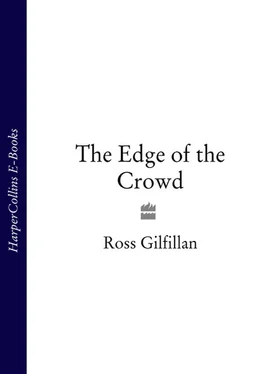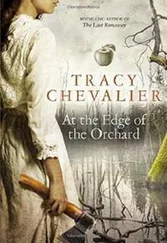‘’Ullo, old chap. I recall you now, I do,’ he murmured. ‘And just what is it that you might be arter, I wonder?’
The Times, London. August 10th, 1851. Last evening, the bridge at Vauxhall being made an impassable beargarden by a collision between a brick-maker’s wagon and that of a corn factor, and this mishap causing a knife-board bus to overturn and spill its passengers, revellers were obliged to look about for some other means of traversing the River. Not only was the bridge blocked to wheeled traffic: the overturned bus, a dying horse and returning Exhibition hordes tramping over a carpet of fresh grain had stopped access from the Surrey shore for everyone, not excepting some medical men called to attend to the injured passengers.
Great millstones of cloud had been rolling across the heavens since late afternoon, presaging the rain that now fell in glass shards and making the scene by the Thames more akin to a November’s night than a late summer’s eve. The deep gloom was relieved only by a luminescence emanating from the environs of the Crystal Palace, which reflected faintly upon the river and also on the darkened spectacles of Henry Hilditch.
The day had not been used well. Had he visited Vauxhall Gardens only yesterday instead, he might have arrived at the river in better humour. From a journalist’s point of view the expedition should have been a successful one. It should have been no less so from a scientist’s: the information that Henry turned into spirited prose for the Morning Messenger he prepared in more objective form for his ambitious work-in-progress, an entomological study of the working classes. At Vauxhall there had been sufficient data to satisfy the needs of either case.
Here at noon he had found the army of waiters and workmen who nightly serviced the raffish crowds in their supper boxes or brought watered negus to those who danced. Hard-worked and poorly paid, the views of these men would make compelling fare for a readership whose letters to the editor already betrayed its fear of the volatile mob. But as Henry had sauntered the length of the South Walk beneath unlit lanterns hung from trees, in the wake of a young couple who walked arm in arm, he could not help thinking of the vacancy in his own heart. Once again he had the impression that, for a little while not so long ago, he had been a different man.
He spoke to no one and made no notes. The afternoon had been wasted and, annoyed at his laxity, he wished only to return to his lodgings with all speed. Vexed at the sudden obstruction of his route and ill-prepared for the sudden change in the weather, Hilditch hailed a ferryman whose craft he had spied tethered beneath the iron supports of the bridge.
This broad-shouldered fellow was being addressed by a tall and well-made man, buttoned into a dark uniform. Hilditch explained himself and tendered the ferryman sixpence, more than the fare he might expect and which he offered in the certain knowledge that other frustrated travellers would soon be competing for his custom. The man shook his head and nodded to the gentleman with him. ‘I am already commissioned,’ he said, shielding a match set to his short pipe.
Hilditch looked upwards to the bank and saw the crowds on foot and heard drivers cracking their whips and yelling at teams of horses as they strove to extricate themselves from the tangle of traffic and turn about. Cold, wet and quite fatigued, he was in no humour to be carried along as part of a swollen mob that flowed like a second river towards the bridge at Westminster and decided instead to wait beneath the arches until the confusion above had been cleared or he could secure a place aboard some river craft. The ferryman offered no further conversation but the man in uniform turned to him and said, ‘It ain’t that there’s no room, sir, but I’ve a van full of prisoners bound for the Tench stuck in the traffic half a mile back. I’d as soon get ’en safe across before the alarm is raised, so I’m come ahead to secure a boat. However, if you don’t object to such company I’m sure Charlie will take your tanner.’
‘If it pleases the gentleman,’ grunted the other.
Soaked to the bone by the enfilading volleys of wind-blown rain, they awaited the arrival of the prisoners with their own heads hung like the Calais martyrs. The sky was now shrouded in the most dismal grey, the advance guard of a summer storm which was quickly upon them. Now, instants of dazzling illumination relieved the obscurity, flashing upon the turbulent waters and petrifying all movement. Here was a rearing horse ossified as equestrian art; there, by the Middlesex shore and dramatically delineated, a keeling sailboat stopped dead before a many-towered and brooding fortress. A blinding blue streak fixed the ferryman with his pipe pulled from his mouth, his thin lips open as if he were about to deliver himself of some profound observation regarding the river and its part in the lives of men.
Not knowing how long he might have to wait in this miserable condition, Hilditch again attempted to engage the ferryman in conversation. Among the reports already published in the Morning Messenger he had several accounts of interviews with those who earn their bread on, or beside, canal and river. He had noted the particulars of lightermen, coal-heavers, bargees and lock-keepers and transcribed the prattle of the scavenging mudlarks who waded in filth as they hunted for scraps of coal and rope, iron and ships’ nails or any water-borne refuse with which they might turn a penny.
Recently, the river had invaded his dreams and disturbed his sleep. In a dismal shed by the Limehouse stairs he had seen the ravages it had wreaked on the body of a woman of indeterminate age and appearance. The lighterman who had recovered the cadaver and who was now awaiting its collection and his own small reward had recounted tales of other luckless souls plucked from the depths or discovered caught among tangles of rubbish by the banks. A young boy in gentleman’s clothes; a woman tied to her two children; such a number of young girls, most likely ruined, who had come to the river to find their release. Henry Hilditch would as soon leave behind this river and the disturbing thoughts that it provoked.
His eyes were raised towards the Middlesex shore but his mind was in his lodgings at Somers Town, to which he would now repair. He was thinking that he would certainly allow himself a reviving glass of brandy, when the gaoler spoke.
‘A fellow might take it for a French fortress,’ he observed. ‘For I’ve seen such when I was working the steam packets.’ He extended a braided cuff and pointed across the river at the low and massive shape of the Millbank Penitentiary. The Tench squatted by the shore, faint gleams showing in its conical towers which rose from corners like candles on a cake. ‘You can’t get the compass of it at this vantage,’ said the gaoler, ‘but there’s a thousand cells within those walls. They do say there are three miles of corridors and I believe it. I’m up and down them all day long. Working the Tench goes terrible hard on the feet.’
‘I’m sure it does,’ Hilditch said. ‘It’s not a job I should care to do. Nor one that I suppose any man could?’
‘Never a truer word spoken, sir,’ said the gaoler, with enthusiasm. ‘The management of miscreants isn’t a calling that suits everybody. It’s my opinion that you must be born to it.’
‘I wonder how you came to be doing such a thing,’ Hilditch remarked, innocently, thinking that he could yet salvage something of this night.
‘Ah, sir, now, there lies a story,’ he said.
‘I should be interested to hear it,’ Hilditch said, quickly. The gaoler offered his hand and gave his name as Farrel. Hilditch explained the nature of his own business and Farrel said that he would be happy to oblige him with a full account if Hilditch thought it might be useful. He listened with unfeigned attention as Farrel began to explain the origins of his employment with the National Penitentiary at Millbank.
Читать дальше












